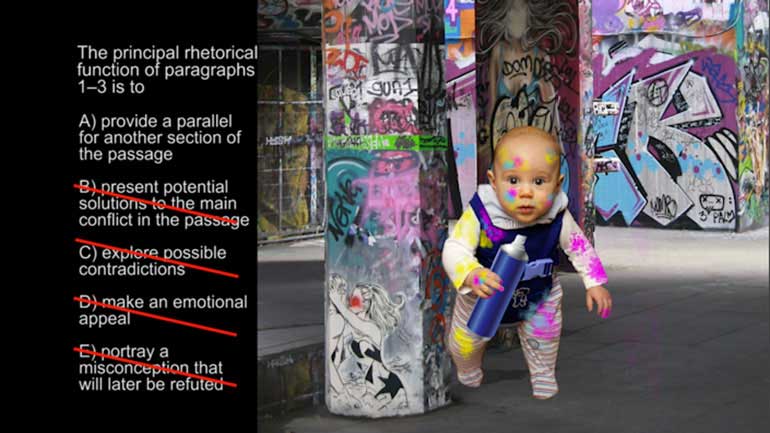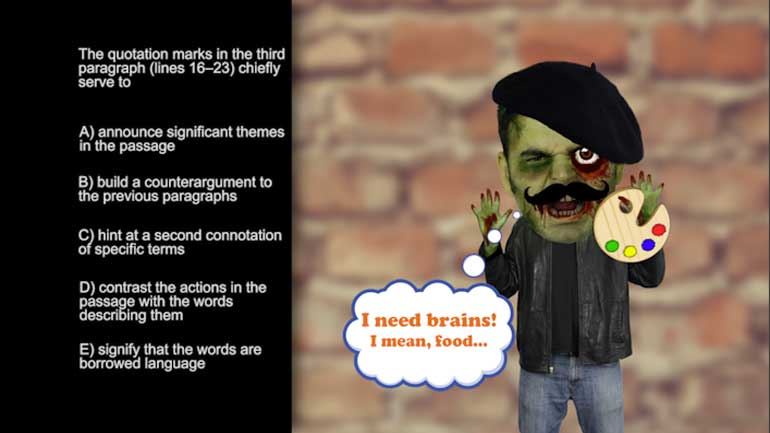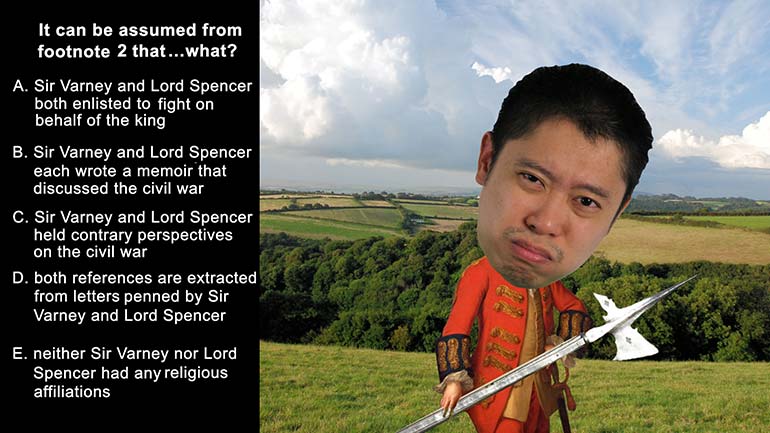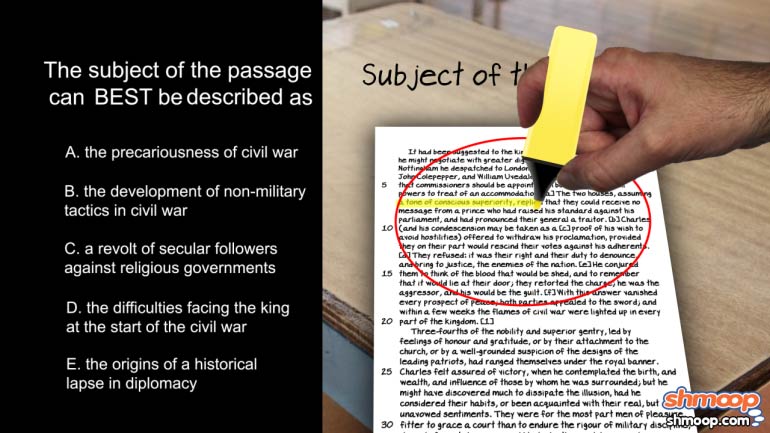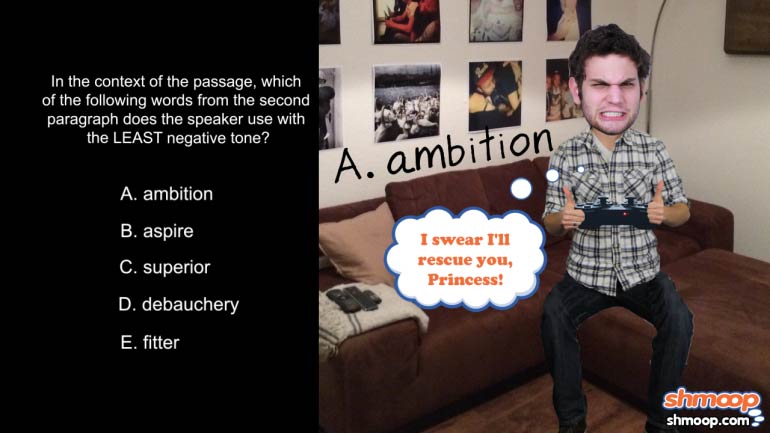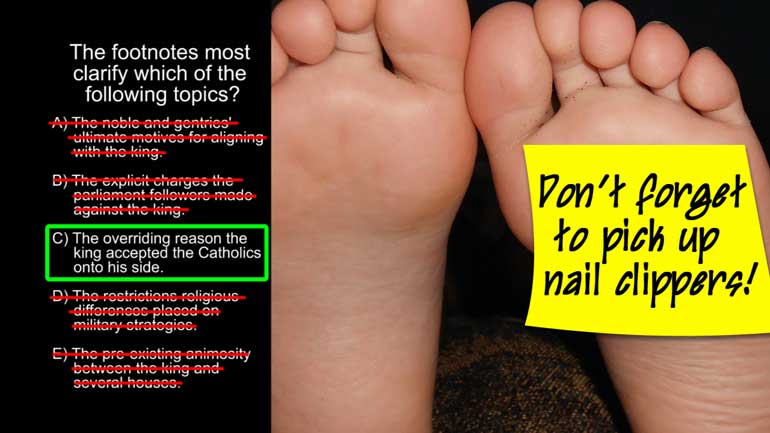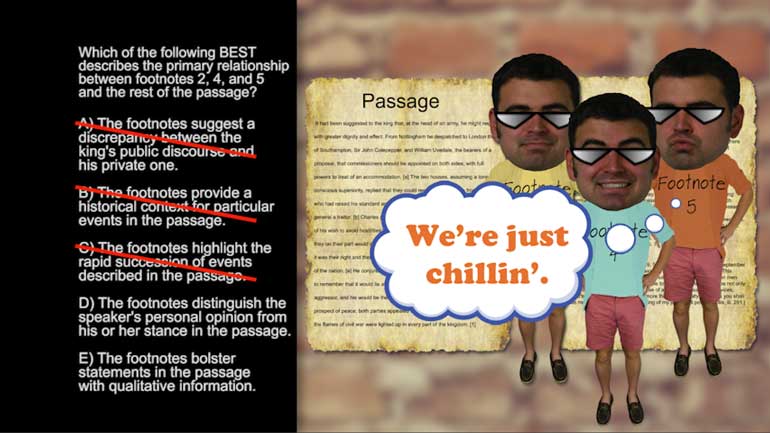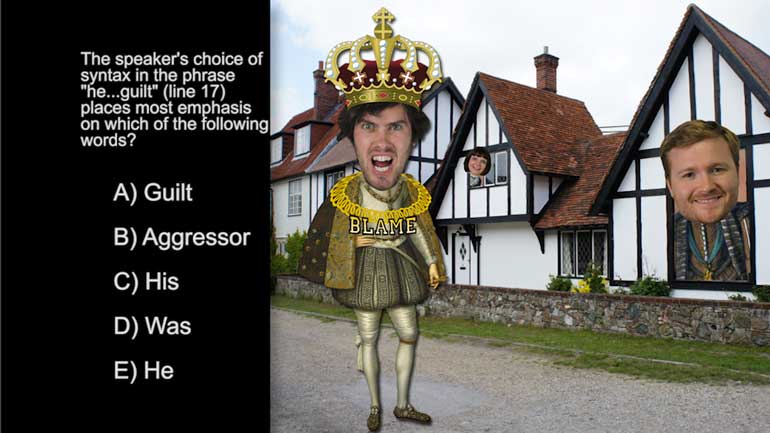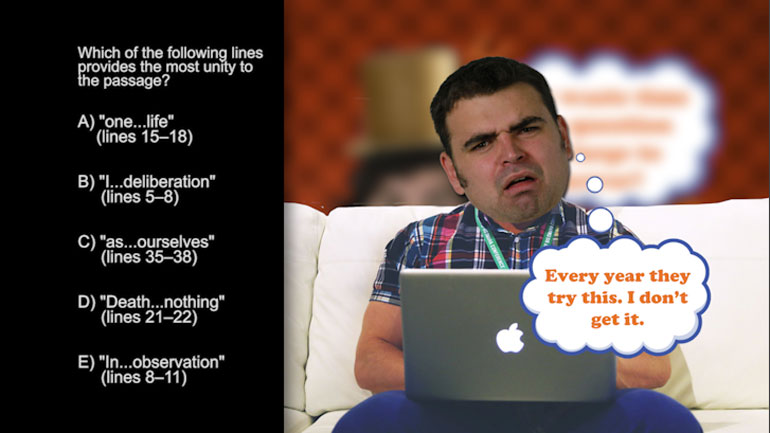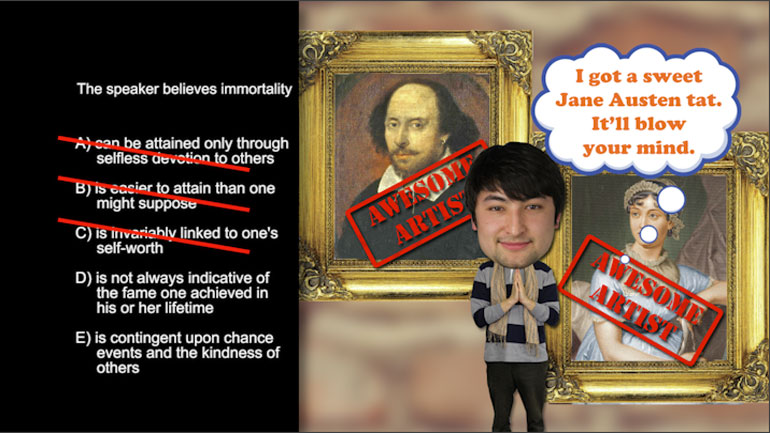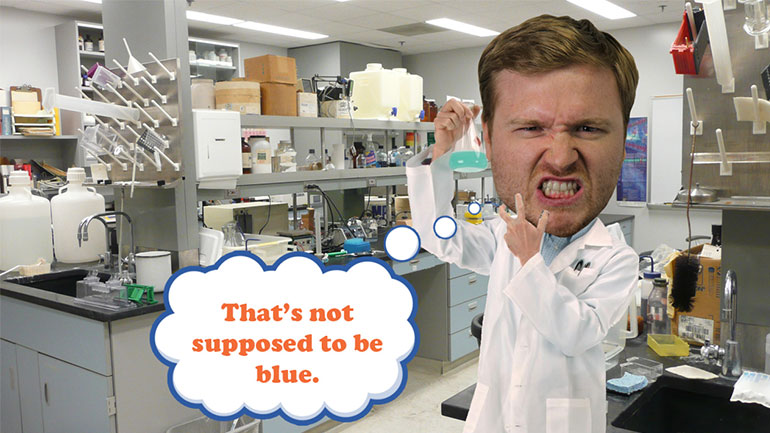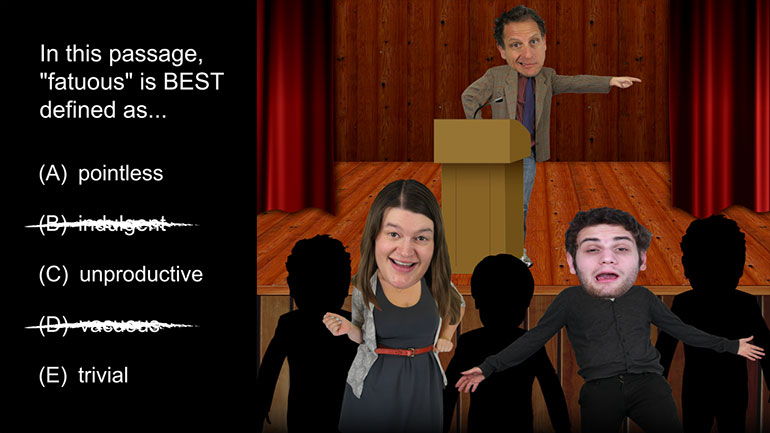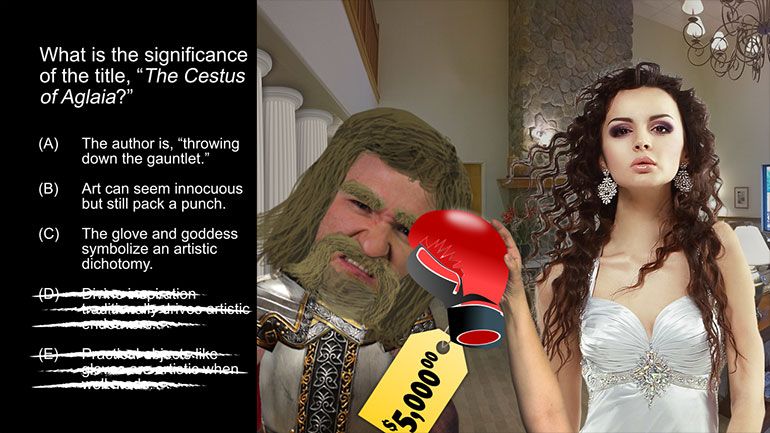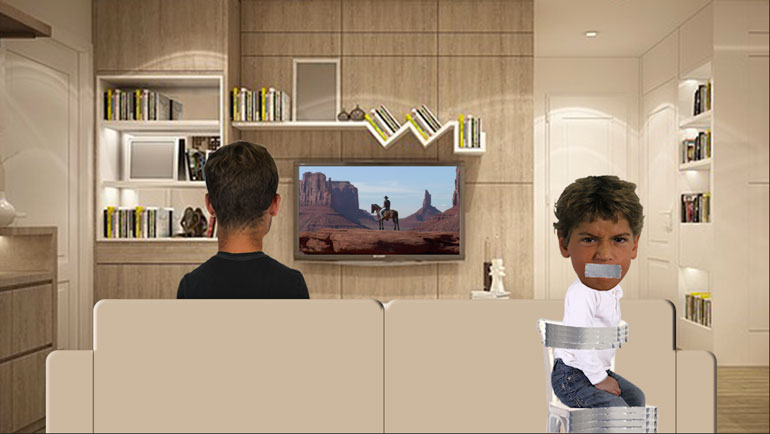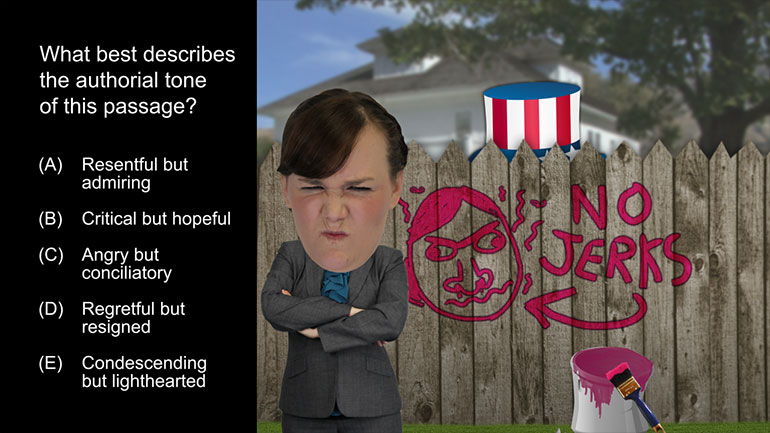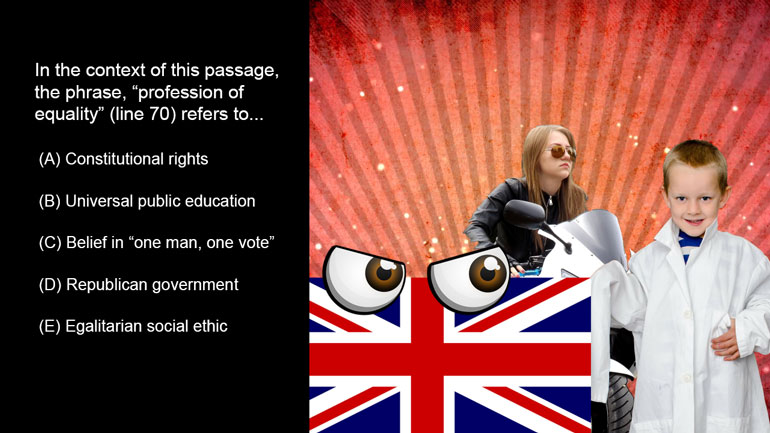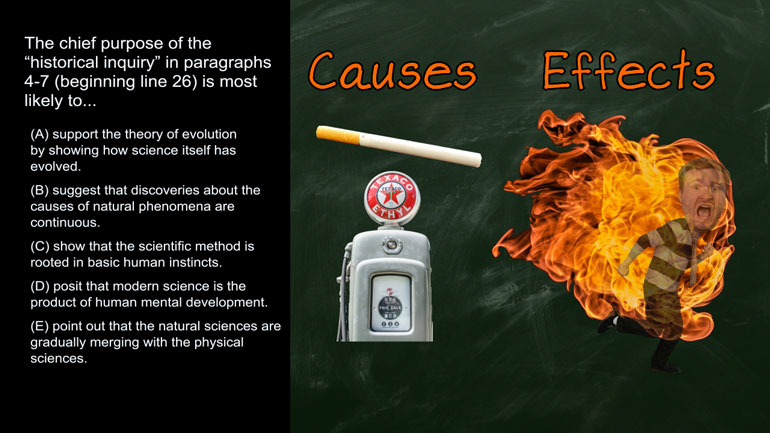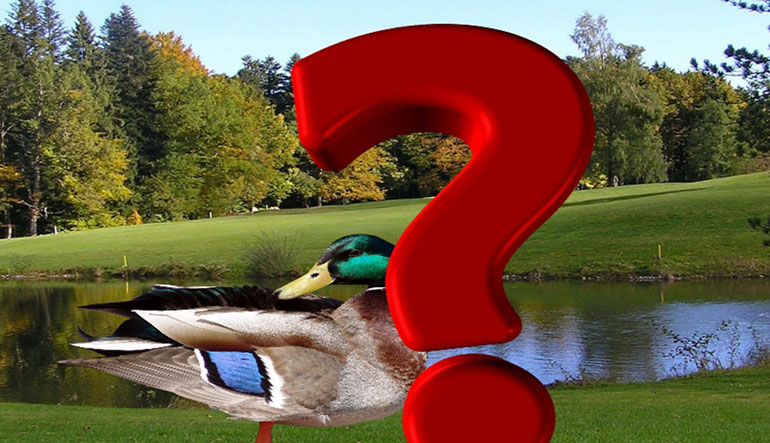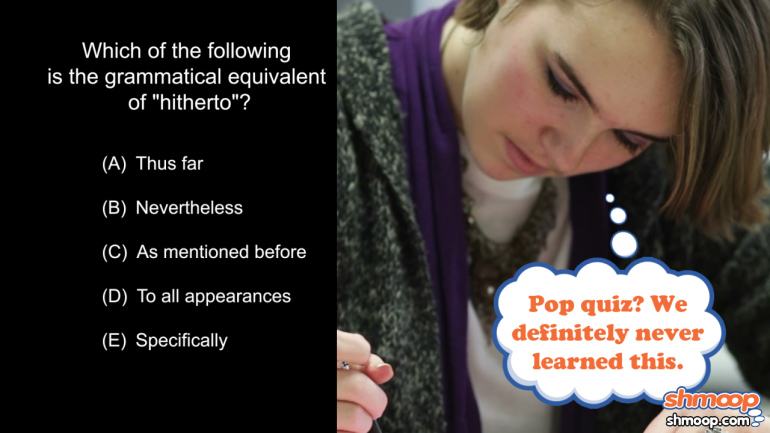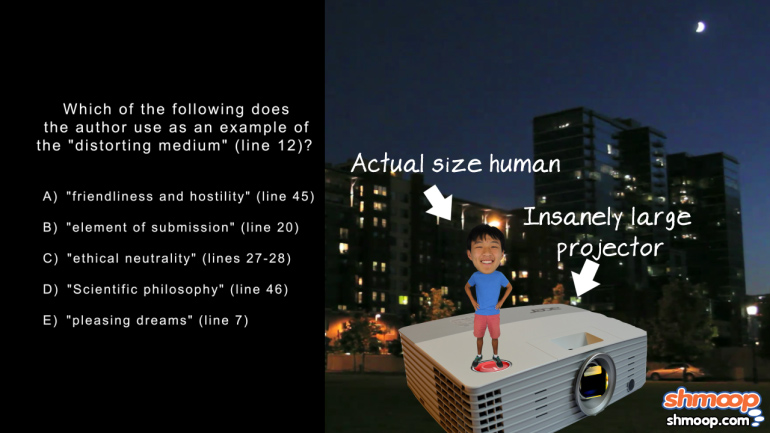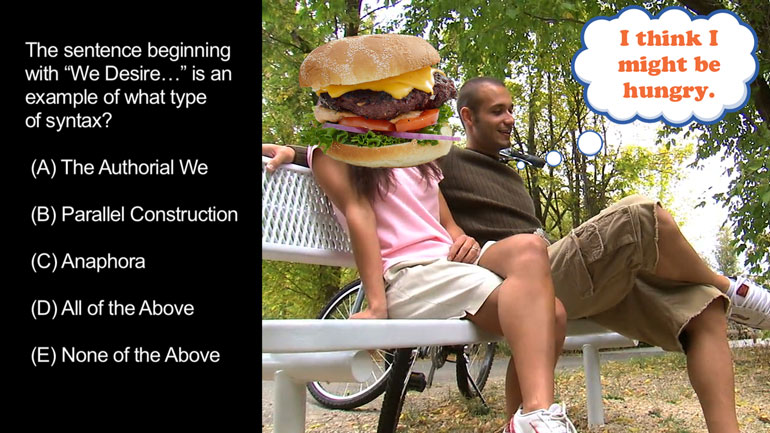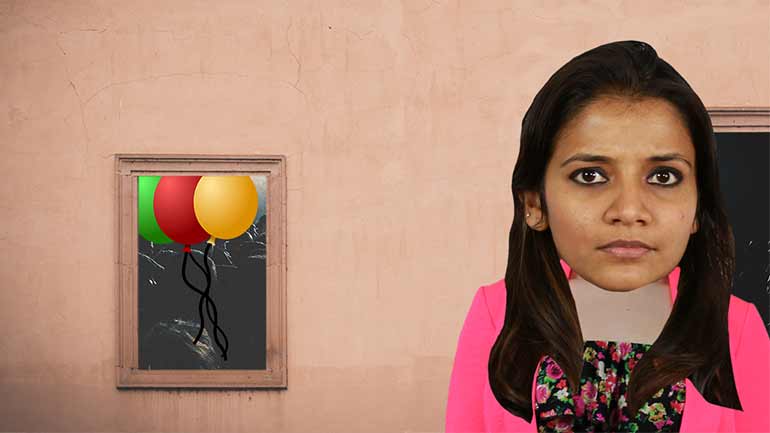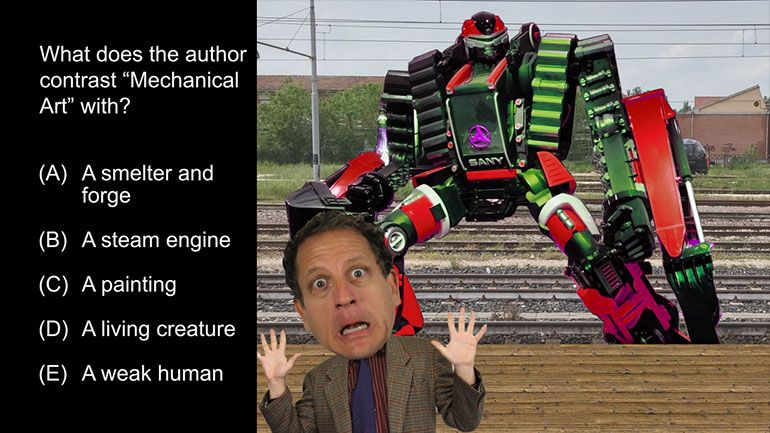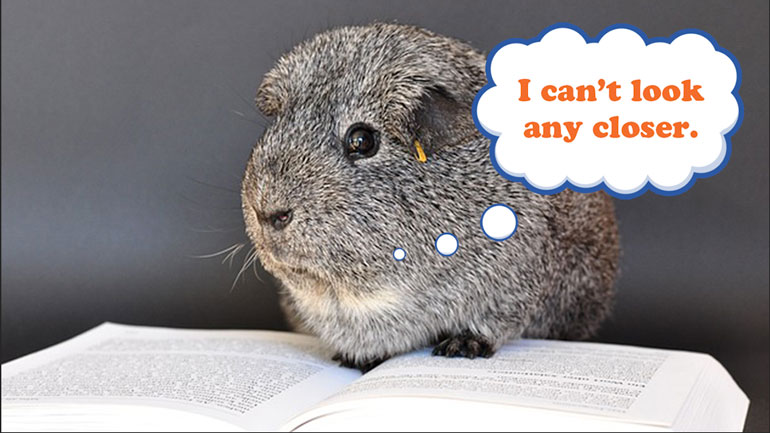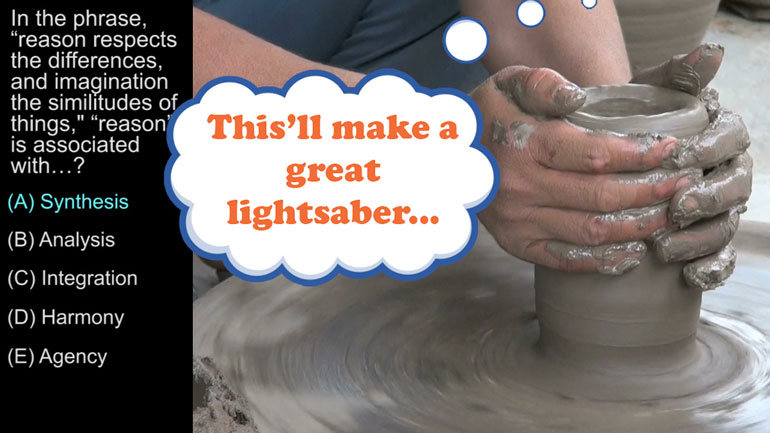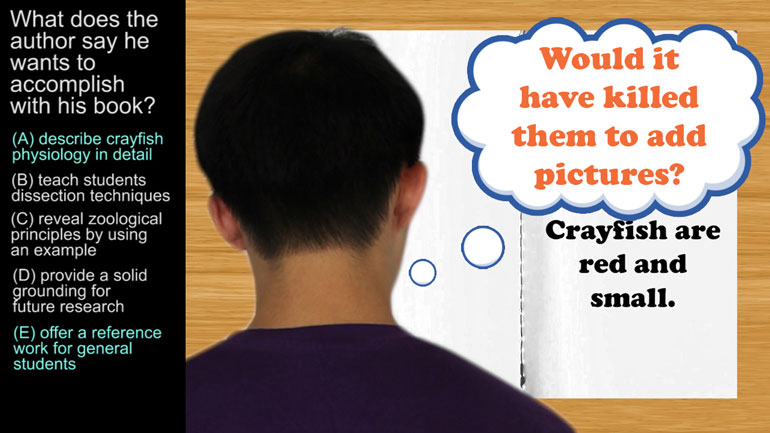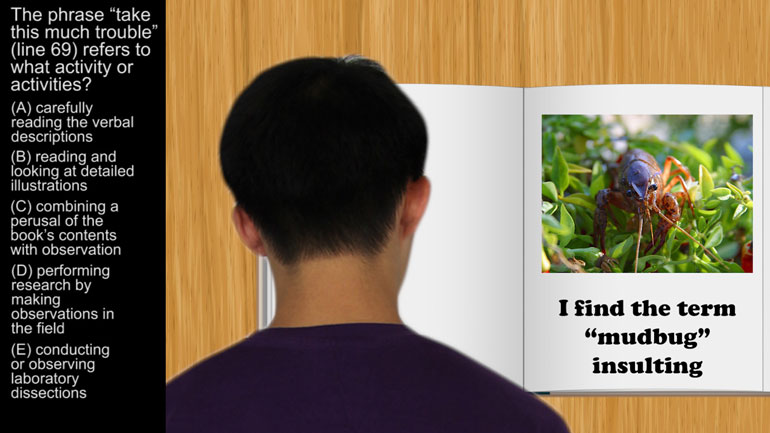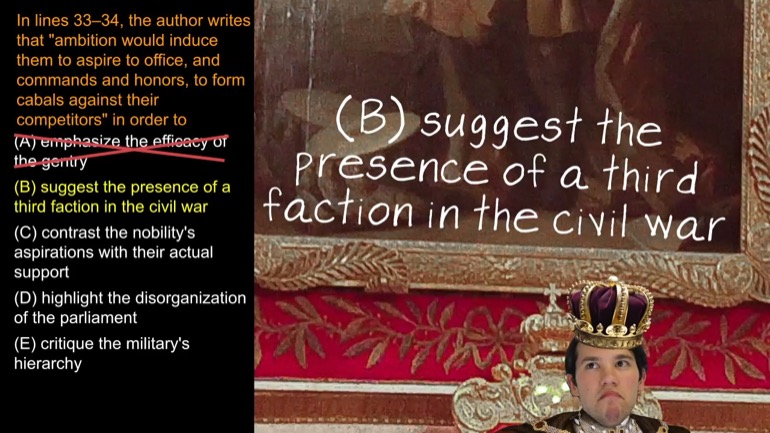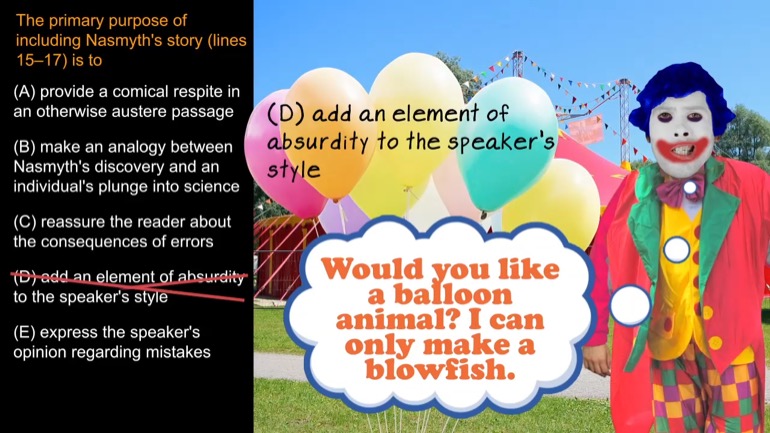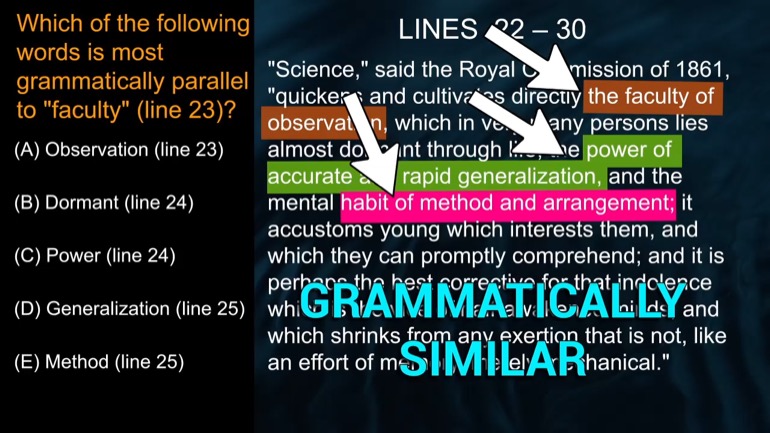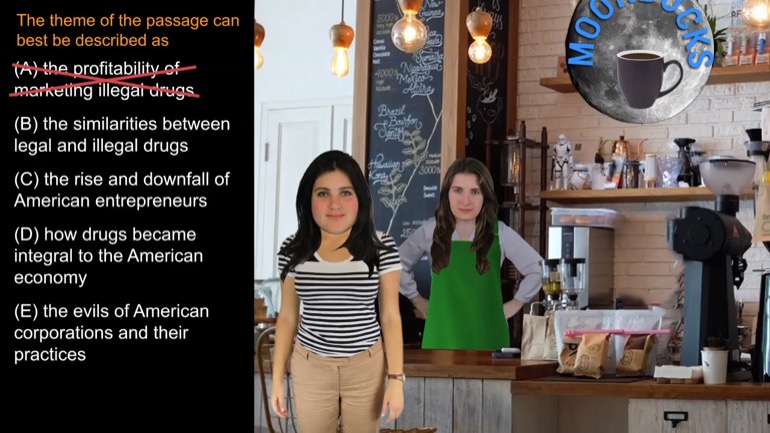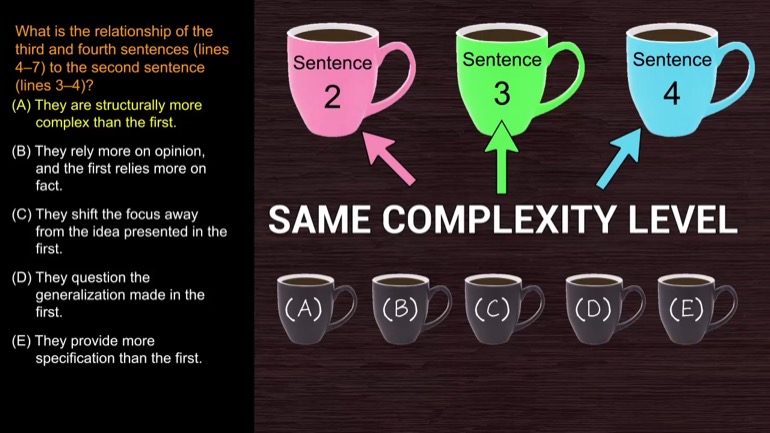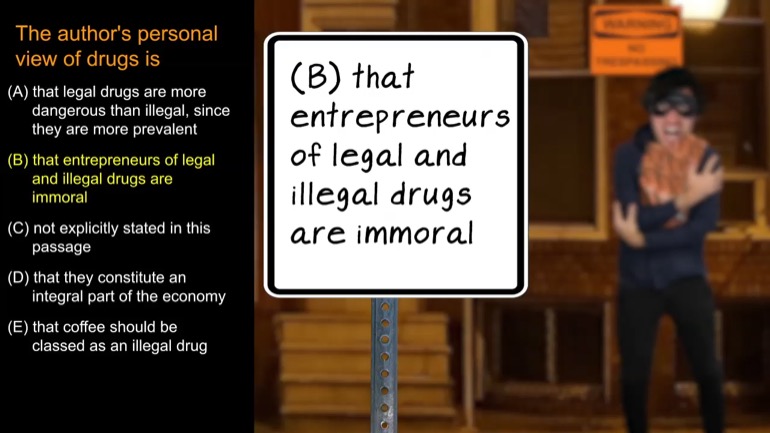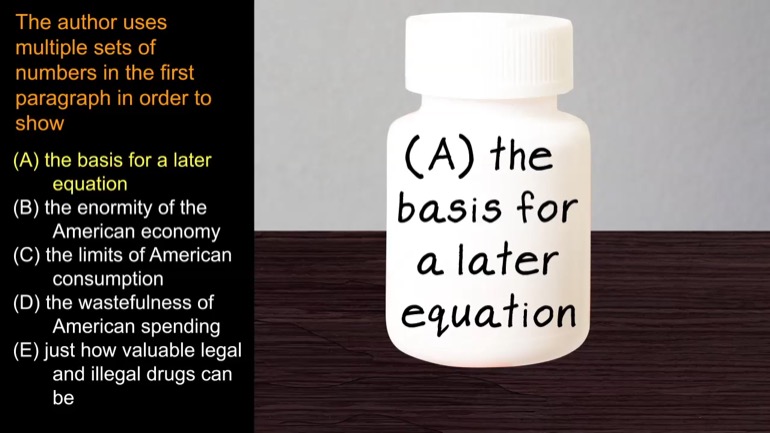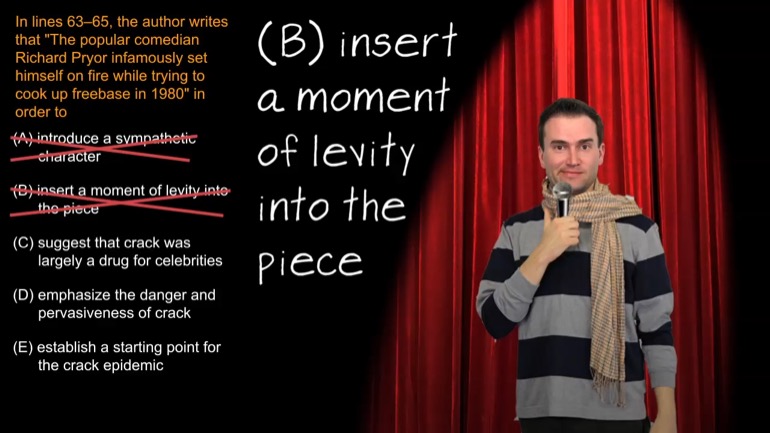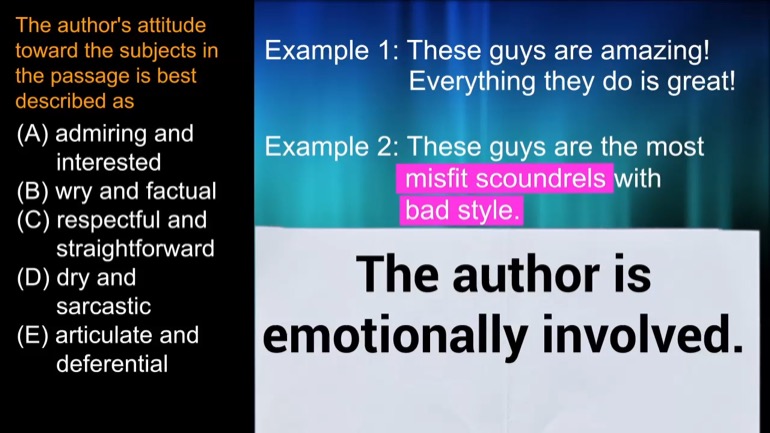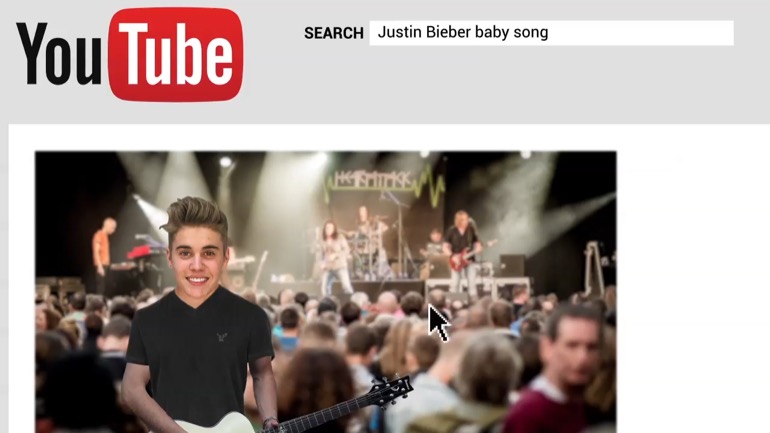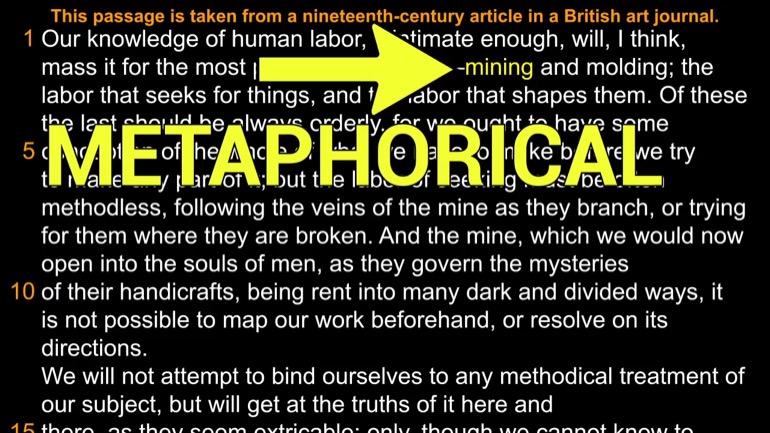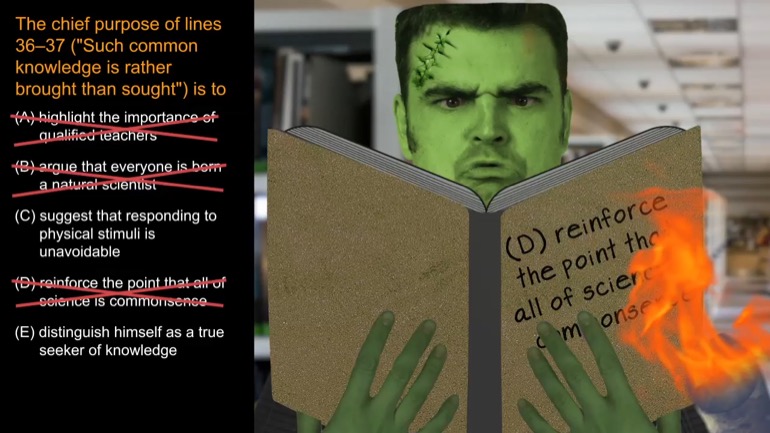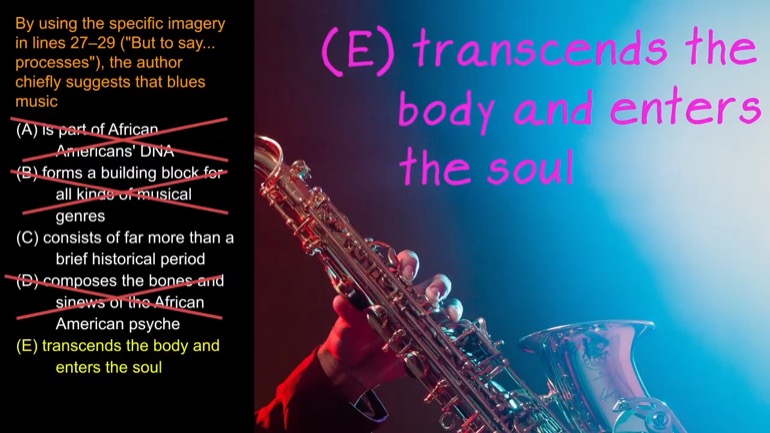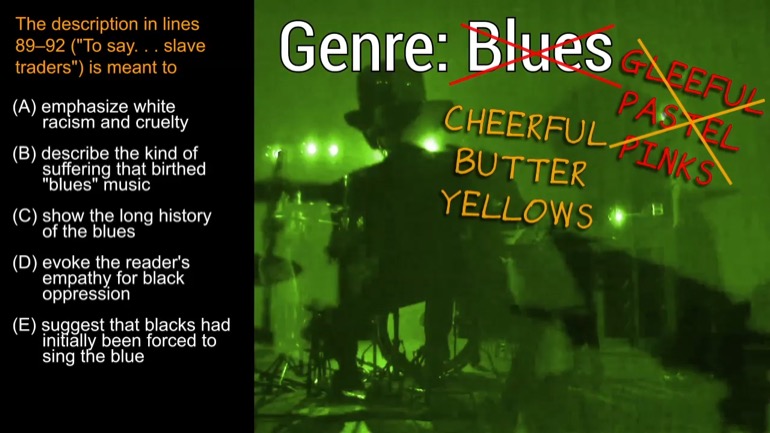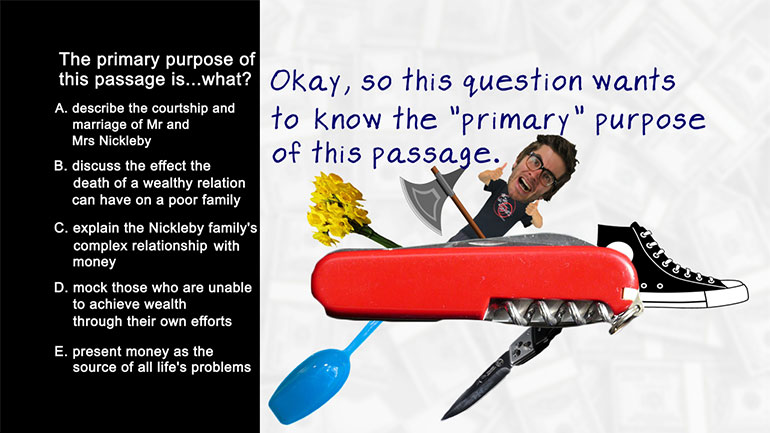ShmoopTube
Where Monty Python meets your 10th grade teacher.
Search Thousands of Shmoop Videos
Passage Drill Videos 153 videos
AP English Language and Composition: Passage Drill Drill 1, Problem 7. What is the principal rhetorical function of paragraphs one to three?
AP English Language and Composition: Passage Drill 1, Problem 8. The quotation marks in the third paragraph chiefly serve to what?
In this AP Language and Composition drill question, read the provided passage and infer information based upon footnote two. AP Language and Com...
AP English Language and Composition 6.8 Passage Drill 196 Views
Share It!
Description:
AP English Language and Composition 6.8 Passage Drill. Which of the following best describes how the author views art in general?
Transcript
- 00:00
Sorry And here's your shmoop du jour brought to you
- 00:05
by twitter if it can be said in one hundred
- 00:07
forty characters well and she said it Okay check out
- 00:12
following passage past take from nineteen hundred british journal Wait
- 00:18
a minute L am not a treatment interruption generally and
Full Transcript
- 00:22
they're in there picking out the fun in buying locomotive
- 00:26
titanium Think of them all right And here's Our question
- 00:34
Which of the following best describes how the author of
- 00:36
use art in general And here are the potential answers
- 00:41
Following okay enough mumbling Now just clarify the question is
- 00:45
asking us to figure out how the author feels about
- 00:48
art not how the author literally views it We want
- 00:52
to find the authors believe within this passage It's probably
- 00:55
best if we start by looking at his stated purposes
- 00:58
for this article he lets us know what those purposes
- 01:01
are when he starts laying out what he desires in
- 01:04
line seventeen number one find by what rules some art
- 01:08
is called good in other art bad number two to
- 01:12
find the conditions of character in the artist which are
- 01:15
essentially connected with the goodness of his work Number three
- 01:19
find water the methods of practice which formed this character
- 01:23
or corrupted And number four how the formation or corruption
- 01:27
of this character is connected with the general prosperity of
- 01:30
nations each that's a lot of stated objective way don't
- 01:33
think our author would have done too well in the
- 01:36
brave new world Twitter All right well looking through these
- 01:39
objective the words character good or goodness and corrupt or
- 01:43
corruption show up repeatedly let's See if those words appear
- 01:47
at all in our answer Well answer it has character
- 01:50
And servi has virtuous which is a synonym for goodness
- 01:53
Well is the work good and answered He has character
- 01:56
and the word good in it twice so let's zero
- 01:59
in on the answer with the most promise See if
- 02:01
it closely aligned with one of the stated objectives in
- 02:03
the article Well answer d states that good art and
- 02:07
good character are connected The author's second stated objective is
- 02:11
the desire to find the conditions of character in the
- 02:13
artist which are essentially connected with the goodness of his
- 02:16
work What the author is basically saying is that he
- 02:19
believes good character found within the artist is directly related
- 02:22
to the goodness of the artist's works or set another
- 02:25
way The author believes good art and good character are
- 02:27
connected can't answer day There we go and that's it
- 02:31
and hey if he had just said good art and
- 02:33
good character are connected it totally would have fit in 00:02:36.77 --> [endTime] tow One tweet Whoa
Related Videos
AP English Language and Composition: Passage Drill Drill 1, Problem 2. What is the speaker's primary purpose in using onomatopoeia in line four?
AP English Literature and Composition 1.1 Passage Drill 7. The primary purpose of this passage is what?
Wishing upon a star may help you pass your AP English Language and Composition test, but answering this question would be a safer bet.
Take a look at this shmoopy question and see if you can figure out which device the speaker employs the most.
Feel like shifting gears and answering a question about shifting tones? We've got you covered. Take a look at this question and see if you can foll...
